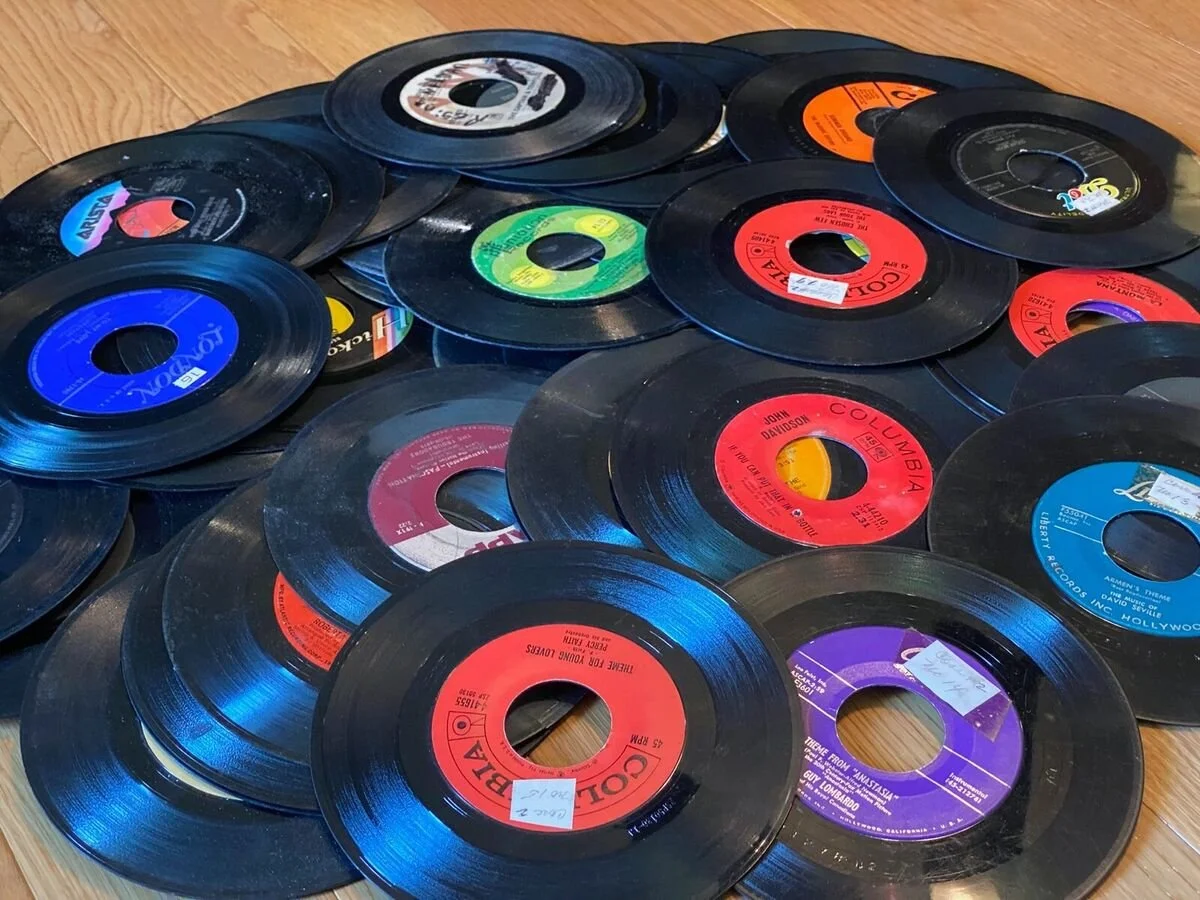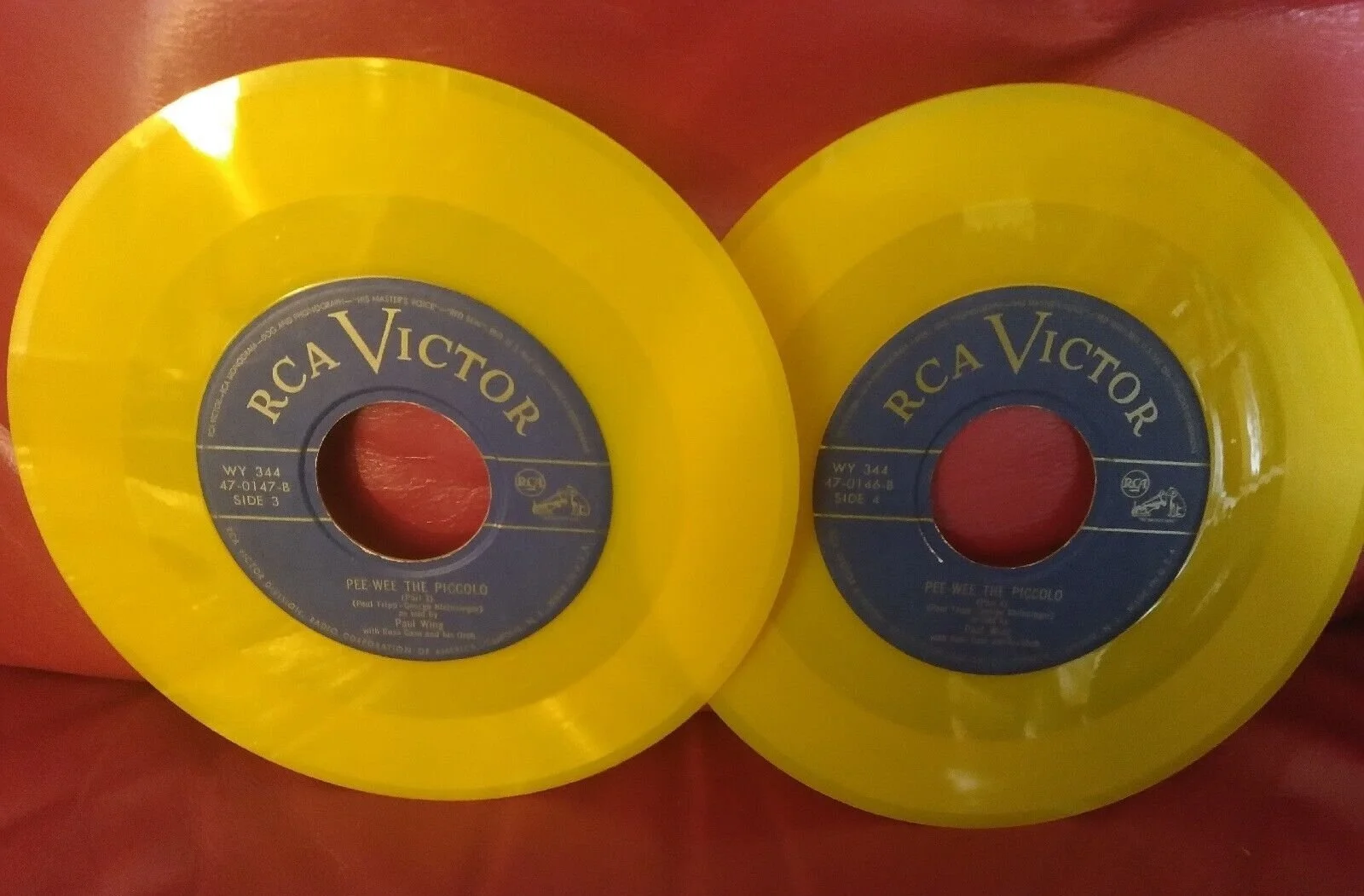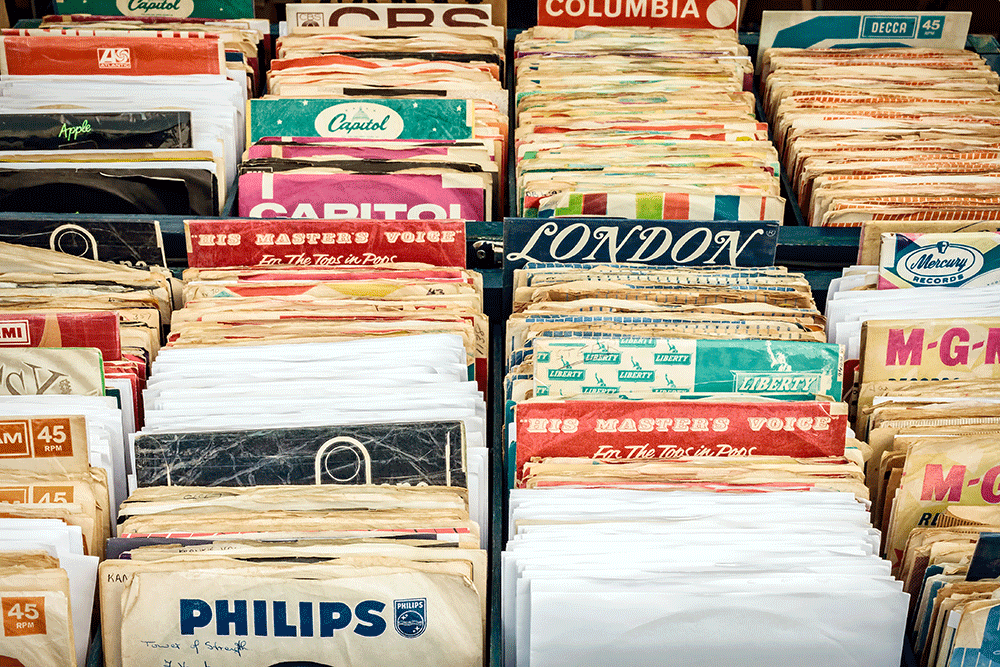By The Landlord
"Sitting next to the turntable listening to a song at a time via 7-inch single is enjoying the sublime state of solitude.” – Henry Rollins
"Singles - we hated it, going on 'Top Of The Pops' and all that rubbish." – Ian Gillan, Deep Purple
"What's your favourite Beatles album?"
"Tough one. I think I'd have to say The Best of The Beatles." – Alan Partridge
A piece of musical bait at the end of a marketing fishing rod, or a separate work of art in its own right? A commercialised beat-driven monstrosity concocted by R&B men, or a pithy, perky, highly creative improvement on some pedestrian, bland, overlong album track?
The single might be the first music we hear by any artist across a myriad of evolving formats. It certainly was for me, before then deliberating over the possible purchase of a whole album, as I often did in my local Woolworths as a kid.
The single has gone through different iterations. In the earlier part of 20th century, often it was the only version, from the scratchy shellac 10-inch 78rpm to that very first official 7-inch 45rpm, a lightweight children's orchestral number titled PeeWee the Piccolo pressed by RCA Victor in December 1948 in a format that went on to dominate for decades.
PeeWee the Piccolo: RCA Victor 47-0146
Remixes and 12-inch variants boosted sales in 1970s and 80s, and along the way there have been flexi discs, cassette singles, mini discs, CD singles and ultimately downloads and their incorporated charts.
In the UK, Gnarls Barclays' Crazy by that clever soulful of duo of CeeLo Green and Danger Mouse, was the first single to hit number with downloads alone in April 2006.
A perfect download marriage: Gnarls Barkley’s Thomas Callaway (aka CeeLo Green) and Brian Burton (aka Danger Mouse)
But for decades, singles inspired excitement, expectation, and in my childhood, feverish post-Top of the Pops playground discussion.
The single has risen and declined many times as markets fluctuate. At the height of the Beatles, a million of their 7-inch singles could sell in a week. By the early 00s, you only needed around 10,000 or more to get to number 1. But where do they sit now?
The 12-inch remix is a topic covered here before, both for the 80s, and earlier, with these fabulous playlists, but this time we take a new spin on the subject – seeking out examples, for better or worse, where the single varies slightly, or considerably, from its album version. The only qualification is that there must be at least one version on each of the formats, and they should differ in any number of ways, and could summon best or worst examples for potential contrasting playlists.
Perhaps the single in question, was brutally, or mercifully truncated. Perhaps it was edited for radio, for any number of reasons - with swearing or other language deleted or amended, or decorously tarted up with orchestra or other instruments, with all manner of production tweaks, with added or deleted solos, different bass and drums, made dancier or more ethereal, edited more as a standalone than as part of a long player flow. Perhaps it was changed for different cultures, even sung in other languages, or re-released to help the artist gain a new profile, or in some cases without their permission on a version they hated. It's a topic of objective fine detail but also subjective taste, that have surprised, delighted or frustrated you.
The single therefore throws up mixed feelings by artists and fans, which makes it a potent subject for you, learned and tasteful Song Bar punters. Roy Wood, that Brummie big hitmaker with The Move, Electric Light Orchestra and Wizzard has popped in to see us for a pint and to offer an opinion on the matter:
"I've always been a bit of a Jekyll and Hyde. I always feel that you should keep singles as commercial as possible so that the people can walk down the road and whistle a song. But on the other hand on albums I think you can afford to show people what you can do."
And here's another pop maestro with a different style, Nile Rodgers: "I grew up in the era of the concept album. What I do now is pick up on singles, and they are their own complete stories; you don't necessarily have to hear the rest of the album because I don't think albums are created like that anymore. They get songs from all over the place."
This is in part echoed by Curt Smith, one half of the duo Tears For Fears, who had a stellar 1980s pop career of high-selling singles and albums. Has the market changed? "Yes. My kids don't really buy albums. They buy singles."
Single sales were at their peak when Todd Rundgren formed his musical tastes in the late 1950s and 1960s with a career that ultimately became much bigger as producer than performer. "I really consider myself fortunate to have been of age during the musical revolution that came in the form of the Beatles. People don't realize that previous to the Beatles, there really was no such thing as an album artist. People made singles. Then they would put a bunch of those singles together and call it an album. And that was it."
That era was all about the single - short, and snappy. The Kinks' Dave Davies has dropped in to cite a prime example, "Elvis's Hound Dog. Most didn't even last three minutes."
But others shied away from the 7-inch format. Here's Jimmy Page:
"Our intent with Led Zeppelin was not to get caught up in the singles' market, but to make albums where you could really flex your muscles - your musical intellect, if you like - and challenge yourself. That said, one of Led Zep's most famous songs turned into a big TV theme tune...
Jarvis Cocker's here too, capturing the ironic perspective of the market. "There's the famous thing that the A&R man from the record company is supposed to do: He's supposed to come into the studio and listen to the songs you've been recording and then say, 'Guys, I don't hear any singles.' And then everybody falls into a terrible depression because you have to write one."
But will your suggestions be hits or misses? Casting a sharp eye and ear for detail on contrasting single and album versions is the perceptive ParaMhor! Deadline for release is 11pm on Monday UK time for playlists published next week. Give it a spin...
Crate-digging treasure hunt
New to comment? It is quick and easy. You just need to login to Disqus once. All is explained in About/FAQs ...
Fancy a turn behind the pumps at The Song Bar? Care to choose a playlist from songs nominated and write something about it? Then feel free to contact The Song Bar here, or try the usual email address. Also please follow us social media: Song Bar Twitter, Song Bar Facebook. Song Bar YouTube, and Song Bar Instagram. Please subscribe, follow and share.
Song Bar is non-profit and is simply about sharing great music. We don’t do clickbait or advertisements. Please make any donation to help keep the Bar running:




